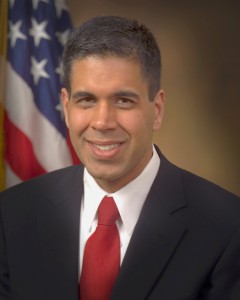We curate a digest of the latest news in our field for advocates, policymakers, community coalitions and all who work toward shaping policies and practices to effectively prevent substance use and treat addiction. Sign up here to receive weekly updates straight to your inbox.
Missouri’s General Assembly this week passed a bill that would require all work-eligible welfare recipients to undergo drug testing. Anyone testing positive would be barred from receiving benefits for three years.
The rate of misuse of prescription pain medications jumped 40 percent in New York City from 2002 to 2009, according to the city’s Health Department.
People who undergo gastric bypass surgery to lose weight are twice as likely to need inpatient treatment for alcohol abuse, compared to those who undergo Lap-Band weight loss surgery, according to a new study.
Teen musicians ages 14-18 are invited to compose or create an original song and/or music video that promotes a healthy lifestyle or accurately depicts a story about drug abuse as part of the Teen Substance Abuse Awareness Through Music contest.
The Canadian Supreme Court will consider the legality of North America’s only government-sanctioned facility that medically supervises the injection of illegal drugs. On Thursday, the court is scheduled to hear a case that pits its founders against the government, which says the facility promotes drug abuse.
States that had the fastest growth of high-speed Internet access from 2000 to 2007 also had the largest jump in admissions for treatment of prescription drug abuse, a new study finds. The researchers say the findings may suggest that online pharmacies, many of which do not adhere to regulations requiring a doctor’s prescription, are contributing to the increase.
Missouri legislators approved a ban on synthetic drugs, known as bath salts, this week. The bill also expands an existing ban on another synthetic drug called K2, to include other similar substances. The measure is awaiting the governor’s signature.
The National Association of State Alcohol and Drug Abuse Directors (NASADAD) and its subsidiary organization, the National Prevention Network (NPN), present a call for applications for the 2011 National Exemplary Awards for Innovative Substance Abuse Prevention Programs, Practices and Policies.
The ranks of school drug and alcohol counselors are thinning as grant funding to pay for these positions declines, The St. Paul Pioneer Press reports. Some school administrators view drug and alcohol programs as luxuries that they can no longer afford.
A bill introduced in the House by a Louisiana Republican would require drug testing for anyone applying for or receiving benefits under the federal Temporary Assistance for Needy Families program.
A new law in Indiana will make it easier for people to drop off their unused or expired drugs to pharmacies and health clinics. Until now, a police officer had to be present when a pharmacy collected unused drugs.
An Ohio doctor was convicted in federal court on Tuesday of illegal distribution of a controlled substance that resulted in the death of four people. Dr. Paul H. Volkman was described by federal authorities as one of the largest dispensers of oxycodone in the nation. He could face life in prison.
A program for veterans with post-traumatic stress syndrome (PTSD) that integrates smoking cessation into mental health care, which was found effective in a study published last year, is now being used in six Veterans Affairs (VA) medical centers around the country.
Anonymity isn’t as big a part of Alcoholics Anonymous (A.A.) as it used to be, according to The New York Times. Whether or not this is a good thing is a matter of debate.
A bill being considered in the Illinois Assembly would give legal immunity to people who call for medical assistance for drug users who overdose.
Teenagers who drink alcohol spend more time on the computer each week on non-school activities, such as social networking and downloading music, compared with teens who don’t drink, a new study finds.
The use of heroin and other injectable drugs are contributing to the rise in hepatitis C infections among white youth in Massachusetts, according to a report by the state’s Department of Public Health.
Florida’s House and Senate have unanimously passed a bill designed to shut down “pill mills,” pain clinics that cater to people shopping for opioid medications. Florida Governor Rick Scott, who has long opposed the drug monitoring database that is part of the legislation, said he will sign the bill into law.
An increase in heroin use in Ohio in the past six months is due partly to the rise in addiction to opioid medication, according to a new report by the Ohio Department of Drug and Alcohol Addiction Services. The report says that people who become addicted to opioids may turn to heroin when they can no longer afford the pills.
An Oklahoma bill passed by the state’s House and Senate would lower the legal alcohol limit for boaters, matching the limit for motorists.
A proposed measure would require universal ID checks for anyone buying alcohol in Anchorage, AK liquor stores and bars. An earlier version of the bill included restaurants, but that provision has been dropped.

It will come as no surprise to anyone reading this that we have a prescription drug problem in the United States. As I see it, however, we are not devoting our attention to the real root of the problem.
Instituting tobacco-free policies at substance abuse treatment centers may discourage participants from completing the program, a study of an Ohio program suggests. The study found that when such a policy was implemented, both smokers and nonsmokers were more likely to stop treatment early.
African American smokers are much more likely than Caucasians to use the counseling services of a California telephone tobacco quitline, according to a study that examined 18 years of calls.
The California Supreme Court has decided that smokers can sue cigarette manufacturers if they develop lung cancer or another smoking-related illness, even if they had a different tobacco-related disease before. The vote was unanimous, The Los Angeles Times reports.